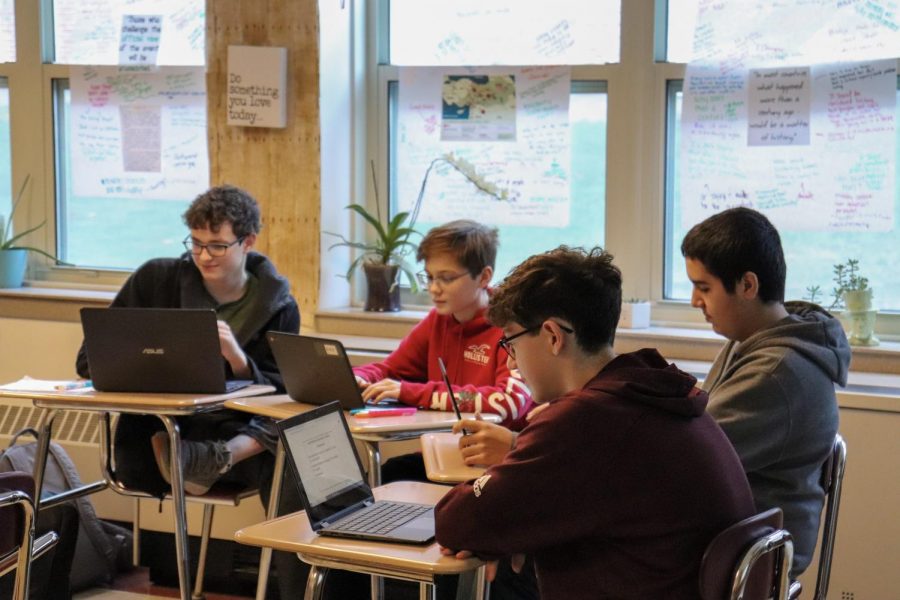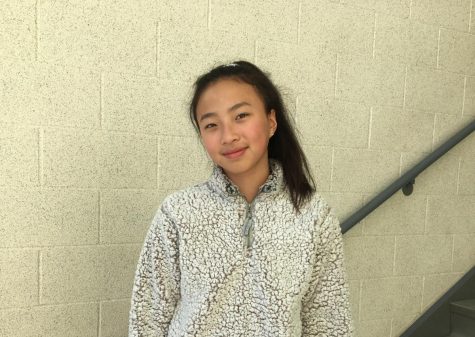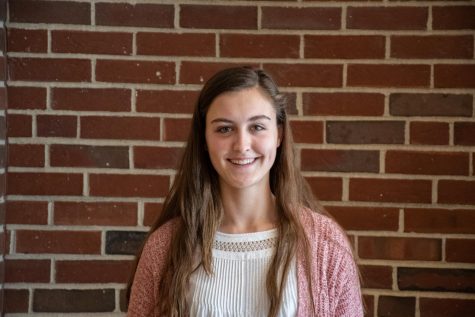US History I continues skill-based unleveled program after successful year
Freshmen students sit in history teacher Kristin Turner’s US History I class. This is the second year that all freshmen take an unleveled course that focuses more on skills than memorizing facts.
December 2, 2019
After a full year of its implementation, the United States History I unleveled program has continued to emphasize skill development as its teachers refine the course for the current school year.
The unleveled program was initiated at the beginning of the 2018-2019 school year, integrating all freshmen into a cohesive CP history course with a curriculum mainly based on skills rather than historical facts. In this program, US I History teachers Amelia Braun, Justin McKay, Gregory DeCosmo, Brian Kellett, Kristin Turner and Renee Moulton have taught students a new skill, such as document analysis, in each unit.
“[The skill-based unleveled program] was a brand new endeavor that US History I teachers took last year, so this is only our second year doing it,” Braun said. “It came from research that said that this [skill-based] format was beneficial because it provided an opportunity for students with all types of learning needs to flourish in the classroom.”
The most significant element of the unleveled program has been Big Group, in which all US History I classes from the same period occasionally gather in the library to collaborate on activities related to the curriculum. Big Group has served as an interactive learning environment for students to engage with students and teachers from different classes.
“Seeing three teachers in one room communicating, adjusting, reflecting and working hard with each other to help [students] is a good model of how people and colleagues can work together,” Braun said.
During Big Group, Moulton has been noticing “tremendous social growth” in the freshmen, as students have been thriving in the tight-knit community of their peers and teachers.
“Students have benefited from the collaboration and commonality amongst the community, and all students from the freshman classes are getting more overall experience [with historical content] because of this,” Kellett said.
“I liked the Big Group activities because they brought classes together and made a bond between students and teachers,” sophomore Robert Kebartas said after taking the course last year.
Not only has this unleveled program presented a learning curve for students, but the course teachers have also been able to learn from each other through the program.
“Our ability as teachers to adapt to each others’ teaching styles and complement each other in different group settings has been the coolest part [of the program],” McKay said. “As a teacher, I’ve learned so much from working with these other teachers and the styles that they bring.”
According to DeCosmo, despite the program’s overall success so far, there have also been many “growing pains” that come with the new curriculum. DeCosmo believes last year, the unit assessments did not effectively evaluate students on the specific skill taught that unit. Because of this, the program received mixed feedback.
“I thought [the unleveled program] was pretty effective, but sometimes, the curriculum was a little disorganized,” Kebartas said.
In response to this type of feedback, the teachers have been fine-tuning the course for the current school year. For example, rather than enumerating each skill to each specific unit, the teachers have begun to apply previously-taught skills to current units, interconnecting them and improving students’ ability to apply the skills.
“We’re really eager to continue to expand on the skills that we’re teaching in the class, and we’re trying to think of how we can further integrate the skills that we’re working on into the assessments,” McKay said.
The teachers have ultimately been noticing better results from students this school year.
“This year, [Big Group] seems to be more widely accepted [than last year], and I can tell it’s going better among the student population because of the way they’re performing,” DeCosmo said. “It’s also much easier for us teachers because we’re giving the lesson for a second time.”
Meanwhile, many new elements have been added to the unleveled program this year. One significant addition consists of name tags worn by students and teachers during Big Group, allowing them to call each other by name and therefore promoting interaction.
“I feel like [the nametags] have allowed [the teachers] to make more connections with more students than just the students in our classes,” Braun said.
Another new component is the Big Group Book Club in which all students and teachers involved in the US History I course are required to read one history-related book of their own selection each semester. Then, for one day near the end of each semester, classes will gather together and discuss their books during the Big Group Book Club Coffeehouse.
“Our goal [for Big Group Book Club] is for kids to be reading and to have conversations about history in a relaxed setting with their teachers,” Braun said.
In addition to these elements, the teachers have been inviting students from all classes to stay after school for test revisions, furthering interaction between students and teachers of different classes.
Overall, the teachers look forward to continue experimenting with and refining the unleveled program to make more connections with all students.
“In two years, [we history teachers] will subsequently have had every student in the building, and we’ll know every kid who’s in the building on a deeper level,” McKay said.











